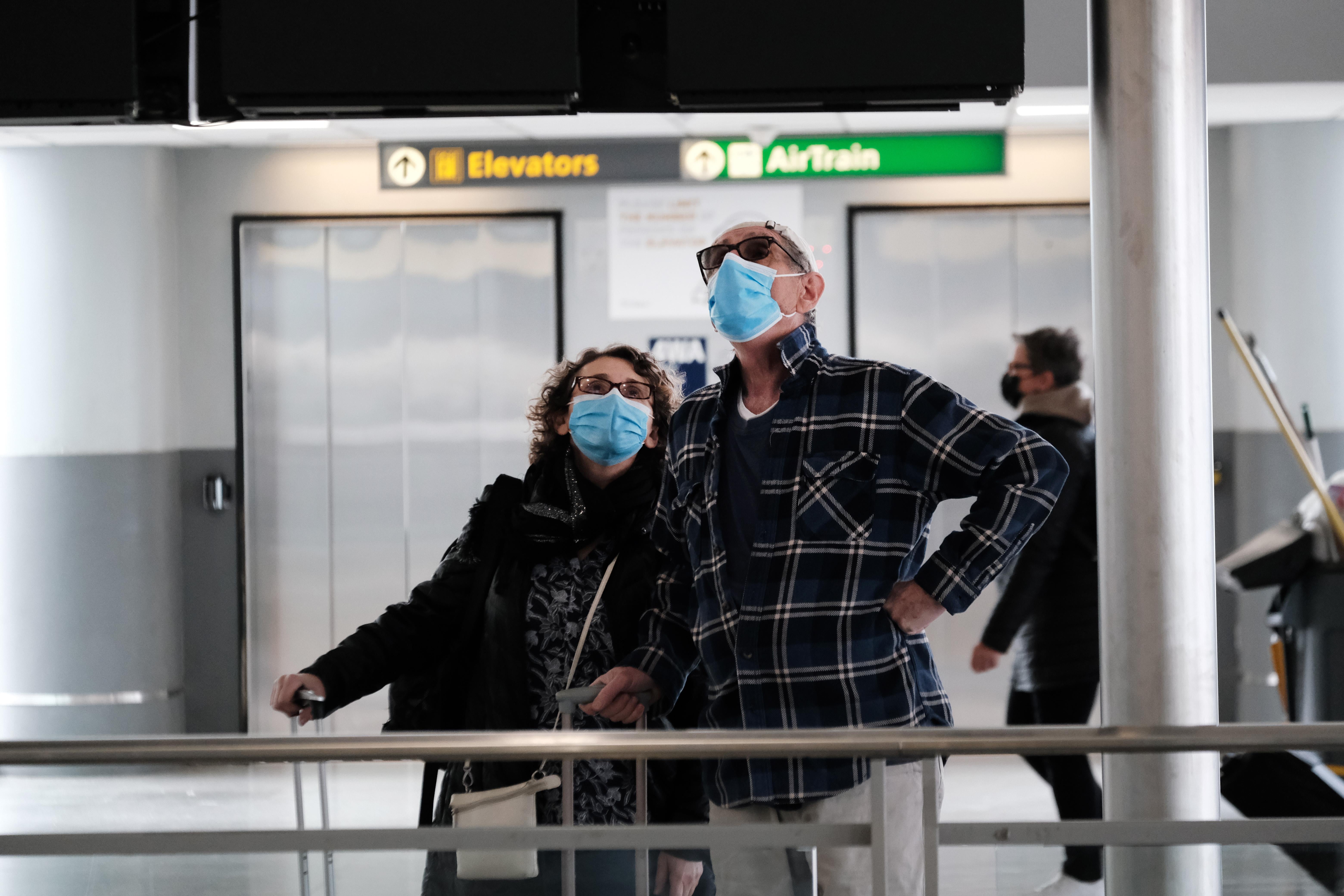On Monday, Judge Kathryn Kimball Mizelle struck down the Centers for Disease Control and Prevention’s public transportation mask mandate—and, in the process, rendered the United States even more unprepared for the next pandemic.
With a pandemic still raging on, and COVID cases slowly ticking upward again in major cities, it may be hard to imagine a separate future pandemic. But another virus will undoubtedly make its way across the globe. And if the CDC’s muddled handling of this current pandemic is any indication, we’re absolutely not ready for the next one.
To understand why, let’s start with our current pandemic. With Mizelle’s ruling, we’ve lost a critical tool in preventing the spread of the highly transmissible respiratory virus that has killed nearly 1 million Americans. Mizelle’s decision rests on an absurdly narrow reading of a major federal statute that formed the basis of several key public health measures over the last two years. Her nonsensical interpretation reduces this vital statute to rubbish, preventing future administrations from drawing upon it to combat future viruses. Whether or not President Joe Biden’s decision on Wednesday to appeal the ruling is good politics, it is sound law. Biden’s Justice Department has an obligation to do everything it can to get this precedent off the books.
The statute in question gives the CDC sweeping authority to issue regulations that “are necessary to prevent the introduction, transmission, or spread of communicable diseases” across state lines. It provides several examples of actions the government might take to stop the spread of a virus, including “sanitation.” The government argued that air travel facilitated the spread of COVID between states, which public health experts have documented. Thus, the government asserted that requiring masks on public transit was a quintessential example of the kind of “sanitation” authorized by the law.
Let’s consider this logic. “Sanitation,” broadly defined, is the act of keeping something clean. Masks, the CDC argued, sanitize the air by preventing the spread of viral particles. Yet Mizelle rejected this intuitive, commonsense definition of “sanitation.” Instead, she ruled that “sanitation” refers to “measures that clean something, not ones that keep something clean,” drawing an artificial distinction between the act of cleaning and the act of promoting cleanliness. Wearing a mask, she reasoned, does not clean things, but rather keeps things clean in the first place. Thus, they do not qualify as “sanitation” under the statute.
Mizelle claims that “wearing a mask cleans nothing. At most, it traps virus droplets.” She then goes on to say “it neither ‘sanitizes’ the person wearing the mask nor ‘sanitizes’ the conveyance.” This, though, is clearly false. We know by now that SARS-CoV-2 doesn’t just spread by droplets; it can also spread as an aerosol, or viral particles suspended in the air. A high-filtration mask like an N95 works by using charged fibers that attract small particles before they can get into your mouth or nose, or before they get into the surrounding air. It removes those particles from the air you breathe in or out, almost like it … cleans that air. Sanitizes, you might even say.
It’s easy to dunk on Mizelle’s reasoning. But this ruling has serious consequences that set a terrible precedent going forward if we want to combat a future pandemic-strain respiratory disease. It could make requiring masks on transportation systems a lot harder if we’re faced with another fast-spreading respiratory virus. Even if the airplane itself has high-quality HEPA air filters, the airport could still be a high-transmission site with passengers eating and milling about.
The implications of Monday’s ruling stretch beyond masks. Mizelle’s decision suggests that the federal government currently has extremely limited power to combat contagious disease. It exudes hostility toward the statute that, since 1944, has formed a bedrock of federal public health programs. This same law, for instance, grants the CDC authority to require quarantine and isolation of infected individuals, particularly at ports of entry. It gives the agency power to inspect animals and other products that could transmit communicable diseases. And in the earlier days of the COVID pandemic, the statute allowed the government to collect and report information about high-risk travelers and mandate COVID testing.
Mizelle’s cramped view of the law might allow for none of this. If it remains as precedent, litigants will undoubtedly race to Florida (specifically, to Mizelle’s courthouse) at the outset of the next pandemic. There, they will file federal lawsuits that hobble the government’s response from day one.
Biden’s Department of Justice therefore made the right move in announcing on Wednesday that it would appeal the ruling to the 11th U.S. Circuit Court of Appeals. It’s certainly a gamble: The 11th Circuit is very conservative, and no matter the outcome there, the losing party will surely appeal to the Supreme Court. But the DOJ may have a trick up its sleeve. When the conflict driving a case becomes moot during appeal—that is, there’s no more ongoing controversy—the Supreme Court may simply vacate the lower court decision. If the CDC formally ends the mandate during this appeal, the administration can ask SCOTUS to wipe Mizelle’s decision off the books. That tactic would prevent the justices from ruling on the merits while erasing this dangerous precedent—a win-win for the government. And the DOJ can only keep this option open by commencing an appeal.
Many airline passengers cheered the end of the mask mandate. Their relief and delight are understandable. It has been an endless two years of the pandemic, and very few people love masking. But in the midst of these midair celebrations, we must remember: There’s going to be another pandemic down the line. When that happens, the CDC will need all its virus-fighting public health measures at its disposal. Right now, the agency’s hands are tied by Mizelle. Short-term, it might be nice not to wear a mask on a plane. But we’ll all pay for it later.
